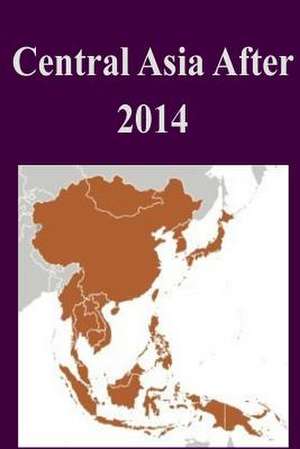Central Asia After 2014
Autor United States Army War Collegeen Limba Engleză Paperback
Preț: 85.00 lei
Nou
Puncte Express: 128
Preț estimativ în valută:
16.27€ • 16.88$ • 13.60£
16.27€ • 16.88$ • 13.60£
Carte disponibilă
Livrare economică 24 februarie-10 martie
Preluare comenzi: 021 569.72.76
Specificații
ISBN-13: 9781502945921
ISBN-10: 1502945924
Pagini: 128
Dimensiuni: 152 x 229 x 7 mm
Greutate: 0.18 kg
Editura: CREATESPACE
ISBN-10: 1502945924
Pagini: 128
Dimensiuni: 152 x 229 x 7 mm
Greutate: 0.18 kg
Editura: CREATESPACE
